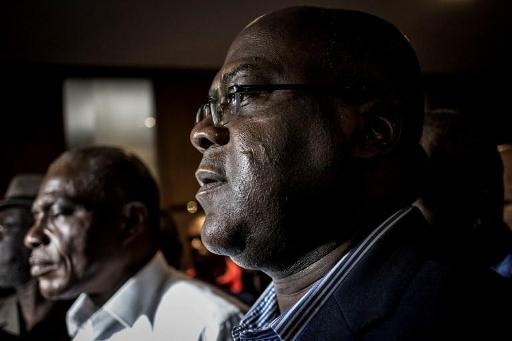A 10-day private visit to Belgium by Congolese President, Félix Tshisekedi, will see the leader speaking with Belgian and European politicians in the coming days.
Tshisekedi - who is also here to undergo a medical checkup - arrived on Sunday on his flight from Congo, and comes the week after King Filip became the first royal to publicly apologise for the atrocities committed by the Belgian regime in colonial Congo. The apologies were made on the 60th anniversary of Congo’s independence.
The Congolese President in his own Independence Day-speech also referred to current Belgian-Congolese relations. Tshisekedi called for Belgians and Congolese people to rewrite their history of colonisation, together.
Related News
- PM Wilmès unveils Ixelles plaque on 60th anniversary of Congo's independence
- 'First step': praise for King's letter to Congolese president
- Dutch-language mistakes found on newly unveiled plaque for Congolese independence
In his speech, the President also referred to Belgium as “his second Congo”. Earlier in his life, Tshisekedi lived in Belgium for 35 years.
Tshisekedi has been the President of Congo for nearly 1.5 years now. His rise to power, however, came with a tense coalition with former President Joseph Kabila.
Tshisekedi’s father, Etienne, led an opposition party and lost the election race to Kabila in 2011. In spite of this, Etienne Tshisekedi declared himself the true ‘elected president’ of Congo.
A Remarkable Time
Back home, the Congo Indépendant-news site reports that Kabila’s visit comes at a remarkable time, seeing that the President’s coalition is said to be facing difficult times. Kabila’s party today still holds the majority vote in the national assembly. This has restricted some of Tshisekedi’s reform policies.
Last week, tensions rose yet again between the two leading parties. Ronsard Malonda was reappointed as the leader of the Election Council Céni, and will now need to prepare the elections of 2023.
Malonda was also in charge of organising the previous elections. In 2017, it was made public that though the Election Council had announced Tshisekedi as the winner, it was in fact candidate Martin Fayulu who had received a majority of the votes.
Both the opposition and the intermediary parties now have little faith that the future elections will be organised with honesty and integrity.
Amée Zoutberg
The Brussels Times

